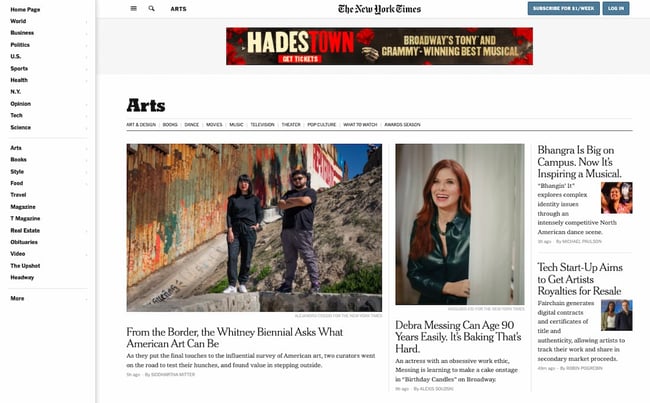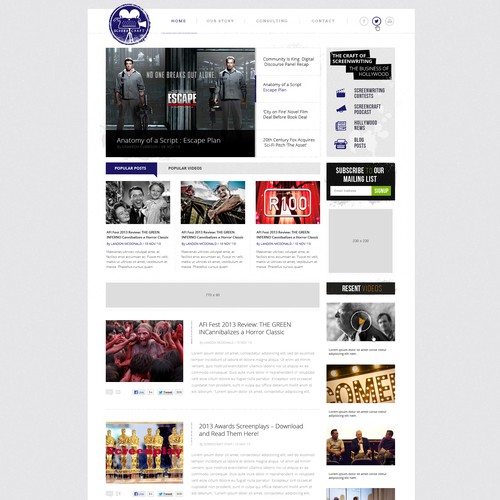The Greatest Guide To News Websites
Table of ContentsThe 8-Second Trick For News WebsitesThe Buzz on News WebsitesThe Main Principles Of News Websites News Websites Things To Know Before You Get ThisThe 9-Second Trick For News Websites
It was down in the UK and Brazil however up a few other nations, such as Greece, Bulgaria, and Poland (News Websites). This year, for the very first time, we asked concerning the different manner ins which people prevent the information and discovered that around half of avoiders (53%) were attempting to do so in a broad-brush or regular means for example, by switching off the radio when the information came on, or by scrolling past the information in social mediaYou stated that you attempt to actively avoid news.

I'm most likely picking to find out more light-hearted stories than I used to currently. M, 51, UK Turning my back on news is the only way I feel I can cope in some cases. I have to knowingly make the effort to avert for the benefit of my own mental health and wellness.
News Websites - Questions
Selective avoidance of Ukraine information was highest possible in a lot of the countries closest to the conflict, reinforcing findings from our additional study last year, soon after the war had begun. Our data may not recommend a lack of passion in Ukraine from nearby countries yet instead a desire to take care of time or secure mental wellness from the extremely real scaries of war.
Contrasting Finland with a politically polarised nation such as the United States (see following graph) that is less affected by the battle, we find a really different pattern of subject avoidance. In the USA, we discover that customers are extra likely to stay clear of subjects such as national politics and social justice, where discussions over problems such as gender, sexuality, and race have actually ended up being highly politicised.
American national politics are pretty poisonous these days. I locate often that I have to separate from tales that just make me angry. F, 61, USA For some individuals, bitter and divisive political disputes are a reason to shut off information altogether, but also for some political partisans, avoidance is often regarding shutting out perspectives you don't intend to hear.

Everything about News Websites
Some are seeking to make information more available for hard-to-reach groups, broadening the news program, commissioning more inspiring or positive news, or embracing constructive or services journalism that provide individuals a feeling of hope or individual firm. In our study this year, we asked participants concerning their passion in these different approaches.
This discusses why stories like Ukraine or national politics carry out well with information regulars yet can at the very same time transform much less interested customers away (News Websites). Discerning avoiders are much less interested in all types of news than non-avoiders however in loved one terms they do seem to be a lot more curious about positive or solutions-based news

The 7-Second Trick For News Websites
2023). This may hold true in the moment, however with time it seems to be leaving many individuals empty and much less satisfied, which might be threatening our connection with and trust fund in the news. Across markets, total count on in information (40%) and rely on the sources people utilize themselves (46%) are down by a further 2 percent points this year.
Undoubtedly, through the rear-view mirror, the COVID-19 trust bump is plainly visible in the complying with graph, though the direction of travel later on has actually been mixed. In some situations (e.g. Finland), the trust fund rise has actually been preserved, while in others the upturn looks even more like a blip in a story of continued lasting decline.
A few of the highest reported degrees of media criticism are located in nations with greatest levels of distrust, such as Greece, the Philippines, the USA, France, and the UK. The most affordable levels of media criticism are often in those with higher degrees of trust, such as Finland, Norway, Denmark, and discover here Japan.
Fascination About News Websites
This year we asked respondents concerning their preferences for message, audio and video when eating news online. Usually, we locate that the majority still favor to read the information (57%), rather than watch (30%) or listen to it (13%), yet more youthful people (under-35s) are more probable to listen (17%) than older teams.
Behind the averages we discover significant and shocking country differences. In markets with a solid analysis tradition, such as Finland and the United Kingdom, around 8 in ten still choose to review online news, yet in India and Thailand, around four in ten (40%) claim they favor to view information online, and in the Philippines that percentage is over fifty percent (52%).